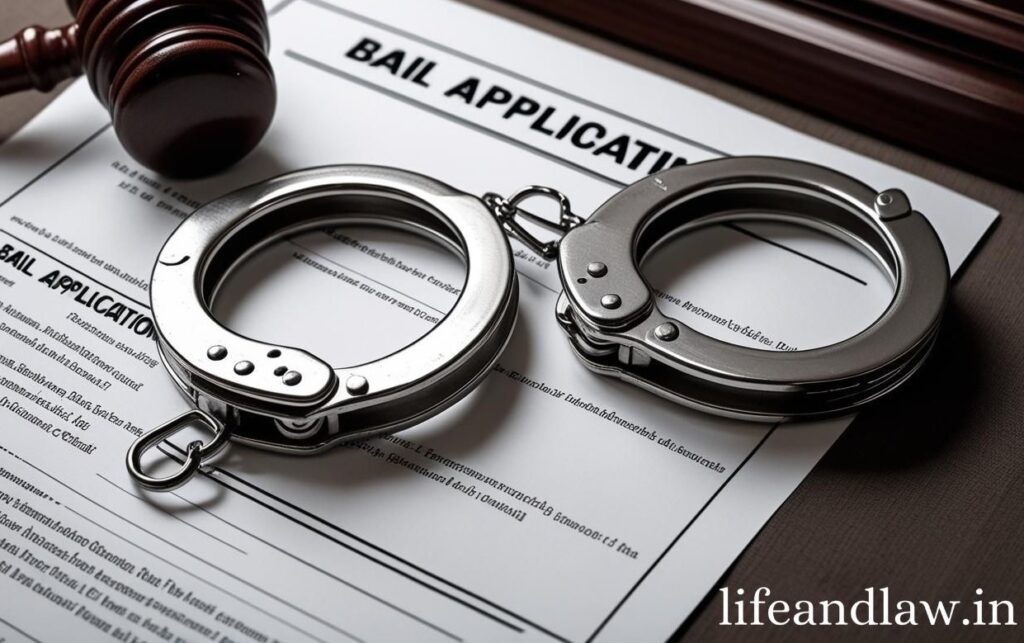Trending

Bail is a legal mechanism that allows a person to be temporarily released from custody, allowing them to be out of jail until their court appearance. When a person is accused of a crime, they must go through the judicial process. During such times, a bail application is made, allowing the accused to be temporarily released under specified terms with the court’s agreement. Bail is an important aspect of the court system because it protects everyone’s right to justice.
There are several types of bail used in various situations. These types allow the accused to participate in the judicial process and provide time for legal preparation. The objective of this article is to examine bail and its various forms.
Bail is a temporary release of an accused person from custody while their trial is continuing. For this, the court must be granted a guarantee or accept specific conditions to ensure that the offender appears in court. Bail allows the accused to remain free rather than in jail.
Bailable Bail (Section 478(1))
When a person is detained by the police without a warrant for an infringement other than a non-bailable one or is brought before a court, they have the right to be freed on bail if they are prepared to post it. If the individual is financially vulnerable and cannot provide a surety, the officer or court may release them on bail based on a personal bond. This form of bail is typically granted as a matter of right and cannot be denied unless there are exceptional circumstances.
This form of bail is provided to an accused or suspect in circumstances where the offense is not bailable. In such instances, bail is granted at the discretion of the court. If there are compelling reasons to suspect the accused is charged with a crime punishable by death or life imprisonment, bail may be denied. Furthermore, if the offender has already completed lengthy sentences for serious offenses, bail can be denied. Bail may be granted, however, if the accused is a minor, a woman, unwell, or physically weak, or if the court deems it necessary for other specific circumstances. The court may set several conditions on such bail, such as not influencing witnesses, not tampering with evidence, or not committing the crime again.
This form of bail is granted to someone who fears being arrested for a non-bailable offense. Such a person can file an application with the High Court or the Sessions Court. This bail permits for instant release upon arrest, as ordered by the court. Several restrictions may be imposed, including collaborating with the police investigation, not threatening witnesses, and not leaving the country.
This applies to people who are in jail until proven guilty. If the offense is not punishable by death or life imprisonment, and the accused has already served half of the maximum term, the court must grant bail. Bail is also allowed to first-time offenders who have already served up to one-third of the maximum sentence. If the offender faces many charges, bail may be rejected.
In this scenario, before the trial is completed or the appeal is heard, the court obtains a bond from the accused to ensure that they will appear in the High Court for appeal or in answer to the court’s notice. This bond is good for six months. If the offender fails to appear in court, the bail is forfeited, and legal proceedings are initiated.
Seeking legal help is critical for securing bail because a lawyer will thoroughly evaluate your case and provide precise information on the nature and seriousness of the offense. They also explain the terms and requirements for different sorts of bail, so you have a thorough understanding of the legal process. The lawyer provides proper assistance on how and where to file a bail application.
If the court denies the bail application, the lawyer will explain your other legal choices. Once freed on bond, the lawyer educates the accused on their obligations and responsibilities, including what acts to take and what to avoid. The lawyer also assists in developing the appropriate legal strategy based on the facts of the criminal case, as well as preparing and gathering the necessary documents for bail.
In this approach, seeking legal assistance is critical for protecting your rights and making informed decisions. At such times, contacting Adv. Abdul Mulla, the author of this essay, via http://www.asmlegalservices.in or http://www.lifeandlaw.in, might be extremely beneficial.
Bail is a measure that provides an accused individual temporary freedom so that they can participate in the legal process. The nature of the charge determines the type of bail, which might be bailable, non-bailable, or pre-arrest (anticipatory). Bail allows the accused to seek justice on their behalf without being confined to jail.
It is critical to follow the proper legal processes throughout the bail process, since any infringement may result in the cancellation of bail. Therefore, receiving experienced legal guidance before filing for bail is highly crucial. Proper legal advice helps you understand your rights and assists you in obtaining justice. In such cases, contacting Adv. Abdul Mulla, the author of this article, at http://www.asmlegalservices.in or http://www.lifeandlaw.in, might be extremely beneficial.
Adv. Abdul Mulla (Mob. No. 937 007 2022) is a seasoned legal professional with over 18 years of experience in advocacy, specializing in diverse areas of law, including Real Estate and Property Law, Matrimonial and Divorce Matters, Litigation and Dispute Resolution, and Will and Succession Planning. read more….
Copyright BlazeThemes. 2025